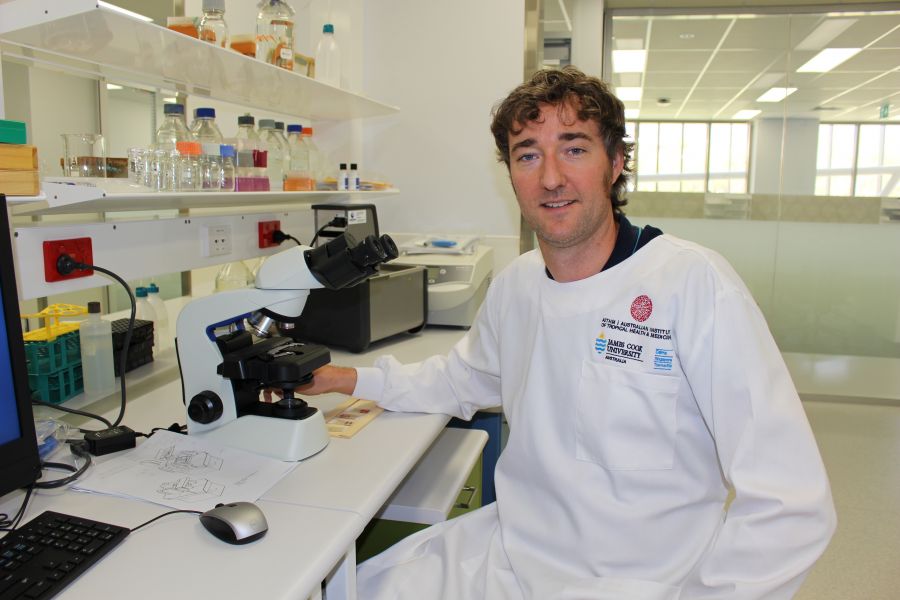
National Health and Medical Research Council (NHMRC) funding just announced delivers a welcome boost to a Cairns-based researcher who is working on new approaches to defeating tuberculosis.
Dr Andreas Kupz from the Australian Institute of Tropical Health and Medicine (AITHM) at James Cook University will receive more than $740,000 over four years from the NHMRC to continue his research.
Dr Kupz said despite the availability of effective drugs, tuberculosis (TB) continued to be the biggest killer among infectious diseases around the world, associated with 1.8 million deaths in 2015.
“The increasing incidence of drug-resistant strains presents a global threat that could render redundant all previous efforts to control TB,” Dr Kupz said.
“The potential introduction of drug resistant strains into Australia via the Torres Strait is an increasing national public health concern.”
Dr Kupz said multi-drug resistant tuberculosis (MDR-TB) had emerged because the tuberculosis bacteria (Mycobacterium tuberculosis) were not completely killed when patients were given a sub-optimal dose of antibiotics, or stopped taking the drugs before their treatment was complete.
“Standard treatment of TB takes at least six months and is costly. However treatment of MDR-TB can take up to two years, including hospitalisation, and is extremely expensive,” he said.
Dr Kupz, from the AITHM’s Centre for Biosecurity and Tropical Infectious Diseases, said his research would focus on understanding the immune response to TB, to generate new and better vaccines.
“Vaccines are the cheapest and most efficient way to prevent infectious diseases, but the only licensed anti-TB vaccine, Bacille Calmette–Guérin, does not efficiently protect adults and therefore does not prevent disease transmission.
“The development of new and effective TB vaccines is crucial.
“In this NHMRC-funded project we will further develop two new vaccine strategies that have shown some success in a small animal model, but are currently not incorporated into potential human TB vaccines.”
Dr Kupz’s research focuses on two strategies designed to boost the body’s immune repose to tuberculosis.
“The first is mucosal vaccination – by delivering the vaccine directly into the lungs we have been able to activate immune cells in the lungs that are not brought into play by traditional treatments.
“The second strategy is also immunogenic. It involves genetically modifying the vaccine strain so that it activates an additional signalling pathway, and leads to the body releasing more killing molecules to fight TB.”
Dr Kupz said the results of this project would be used in the pre-clinical design phase of new TB vaccines, with the potential to save millions of lives in the developing world as well as dramatically affecting health budgets within Australia.
“If the project is successful, we could help keep Australia free of MDR-TB and contribute to achieving the World Health Organisation's goal of global elimination of TB by 2050.”
Dr Kupz said JCU’s location in tropical Australia, combined with access to state-of-the-art laboratories and equipment, including new high level biosafety facilities, provided an excellent base for TB research.
Information for media:
Andreas Kupz: (07) 4232 2048




